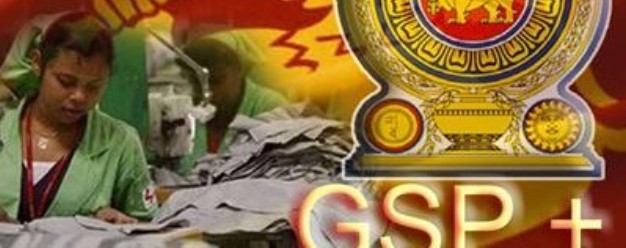*Responds positively to Sri Lanka’s re-application; *Removal of ban on fish exports also expected.
The government expects the European Union to restore the GSP Plus facility which was withdrawn in 2010 over the previous regimes failure to comply with international labour regulations and its poor human rights record before the end of this year.
Deputy Foreign Minister Ajith P. Perera said in Colombo last week that the EU had responded positively to Sri Lanka’s re-application for the GSP Plus facility and talks between the two sides were proceeding smoothly.
“We expect the special GSP concessions to be restored before the end of this year,” he said.
The Sirisena-Wickremesinghe government, he revealed, had engaged the EU constructively unlike the previous administration which had adopted a confrontationist attitude resulting in a large number of Sri Lankan exporters especially in the garment sector and other small and medium scale industrialists being left in the lurch.
The Deputy Minister said that in accordance with Non Aligned principles , they were exploring opportunities with all countries aimed at boosting trade and commerce, which would bring in much needed foreign exchange and also provide employment opportunities.
Industry and Commerce Minister Rishad Bathiudeen, welcoming the latest developments, noted that the country had lost considerable revenue especially in the apparel sector since losing the GSP Plus facility.
Government spokesman and Health Minister Rajitha Senaratne who held the fisheries portfolio in the previous government said that the ban on fish exports to the EU due to “illegal, unreported and unregulated fishing” was also expected to be removed soon, going by the progress made during high level talks.
“When I as Fisheries Minister visited the EU, they responded positively to my requests, but the Rajapaksas adopted an indifferent attitude saying we could survive without such mercies,” he recalled. “The current government had adopted a sensible approach by giving priority to the peoples needs and not those of the rulers.”
Diplomatic sources observed that the previous government by its intentional approach had antagonized powerful countries so that that it could play the “patriotic card” in blinding the people against the unprecedented corruption and human rights violations that had prevailed under its rule.
Sri Lanka permanently lost the GSP Plus status in 2010 following a resolution alleging failure on the part of the Rajapaksa regime to probe war crimes that had been leveled both against it and the LTTE being presented to the United Nations Human Rights Council.
A senior eight-member EU Trade Working Group on GSP Plus visited Colombo in March this year and held discussions with the Sri Lankan authorities.
They said that the EU-Sri Lanka Working Group on Trade and Economic Cooperation had been held in a “friendly and constructive atmosphere.”
“We discussed issues related to promoting bilateral trade and investment. In particular the process that may lead to the re-admission of Sri Lanka to the status of GSP Plus under the European Union’s new GSP regulation was started. Bilateral matters relating to investment facilities, import duties and fishery exports were also discussed.”
The two sides had also reviewed progress in the WTO Doha Development Agenda negotiations and expressed hope that the Trade Facilitation Agreement would enter into force at the 10th WTO Ministerial Conference in December 2015.
The EU delegation also revealed that it was favourably considering Sri Lanka’s proposal for possible funding in the areas of trade-related capacity building and development support for SMEs’ trade competitiveness in regional and EU markets under the EU’s Regional Programming for Asia Multi-annual Indicative Programme 2014-2020.
The EU was Sri Lanka’s largest market, accounting for one-fourth of all exports, of which garments constituted around 60 per cent. In 2014 apparel exports to the EU increased by 10.5 per cent year-on-year to US$ 2.2 billion.
by Zacki Jabbar /IS
